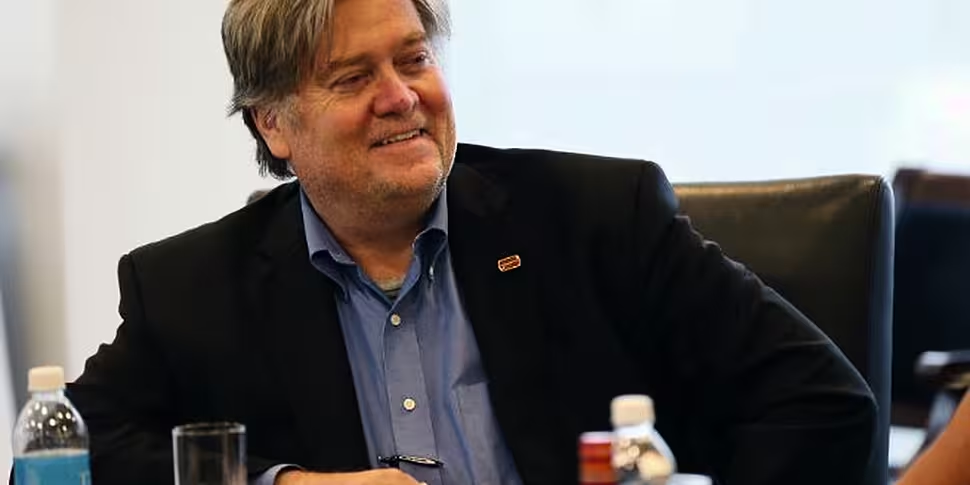In a speech this week, Hillary Clinton brought more mainstream attention to a group that has become known as the alternative or "alt" right.
During her most strongly-worded attack on Donald Trump to date, she argued the Republican candidate has helped make "hate groups mainstream".
"The names may have changed. Racists now call themselves 'racialists'. White supremacists now call themselves 'white nationalists'. The paranoid fringe now calls itself 'alt-right'. But the hate burns just as bright."
Previously a description best known to those who keep track of the seemingly endless culture wars waged on Twitter, the 'alt-right' has certainly gained visibility in the lead-up to November's presidential election in the US.
But what exactly is this new group?
As the name helpfully suggests, the alt-right veers sharply towards the right-wing. Predominantly US based, many of their beliefs and actions would see them classified on the far-right. They also defy traditional classification in many respects, embracing some beliefs that traditional conservatives would consider 'liberal'.
The Southern Poverty Law Centre - a group 'dedicated to fighting hate and bigotry' - says the alt-right's "core belief is that 'white identity' is under attack by multicultural forces using 'political correctness' and 'social justice' to undermine white people and 'their' civilization."
'Members' - which is probably a strong word for a very loosely organised grouping - of the alt-right operate primarily online, very often anonymously, and have a strong presence on websites such as 4chan. It is a movement dominated by young men.
Tech-saviness is undoubtedly one of the distinguishing features of the alt-right, and its rise is often linked to the so-called 'Gamergate' controversy.
'Alt-righters' can regularly be recognised through their use of memes (such as Pepe the Frog) and language - particularly vocabulary such as 'cuckservative'. They have a tendency to 'troll' their opponents and, in some cases, this shifts towards straight-up harassment.
Critics have regularly linked the movement to white nationalism and antisemitism, as have some adherents. The alt-right has been linked with the 'three brackets' that were initially insidiously used to single out Jewish Twitter users, although the 'symbol' has since been re-purposed by many other users to show solidarity against antisemitism.
Self-proclaimed alt-righters almost universally support Donald Trump for US president.
They often share a distaste for what they describe as "social justice warriors" or "SJWs" - a phrase some conservatives now use as a slur for anybody with mildly to extremely progressive viewpoints, particularly feminists.
As Giles Fraser argues in The Guardian, for alt-righters "these are bad: Islam. Feminism. Democracy. Black Lives Matter. The new Ghostbusters movie. Egalitarianism. Political correctness. God. Immigration. Hillary Clinton. Newspapers. Government. Academia. Liberalism."
On conservative website Breitbart, which has been described by its chairman and Trump campaign official Stephen Bannon as the "platform for the alt-right", Allum Bokhari and Milo Yiannopoulos wrote that the movement is: "young, creative and eager to commit secular heresies [...] They have become public enemy number one to beltway conservatives - more hated, even, than Democrats or loopy progressives.
"Lefties dismiss it as racist, while the conservative press, always desperate to avoid charges of bigotry from the Left, has thrown these young readers and voters to the wolves as well," they add.
Yiannopoulos himself, who was recently permanently banned from Twitter, is often seen as a figurehead of the movement.
Breitbart, perhaps the site most publicly and ideologically associated with the alt-right, has been noted for its unwavering support for Donald Trump. His appointment to the campaign has formalised that relationship.
Deeply distrustful of the 'mainstream media', they have found themselves a home and voice over at Breitbart, but have also won themselves legions of enemies and critics.
Hillary Clinton suggested in her speech that "the de facto merger between Breitbart and the Trump Campaign represents a landmark achievement for the alt-right. A fringe element has effectively taken over the Republican Party.
"And this is part of a broader story - the rising tide of hardline, right-wing nationalism around the world," she added.
You don't have to look far to see others calling out the far-right and their tactics. Wired describes them as "a dark army of racist trolls".
"The goal is often offensiveness for the sake of offensiveness in the way that many young white men embrace," writes Philip Bump in The Washington Post.
Traditional, 'establishment' conservatives have also attacked the alt-right, with one article in The National Review titled "the racist moral rot at the heart of the alt-right".
Alt-righters themselves have been celebrating the increased profile they've received thanks to Hillary Clinton's speech, with #AltRightMeans a trending topic in the hours after the speech was made.
Once a fringe group operating primarily in niche corners of the internet, the alt-right has gained enough attention to become part of the mainstream political conversation.
The alt-right will be hoping the extra visibility adds more fuel to their fire - they are, after all, a group that has never shied away from attention.
Hillary Clinton and the many critics of the alt-right, though, will be banking on the speech encouraging more people to speak up and actively oppose the group's tactics and beliefs.









